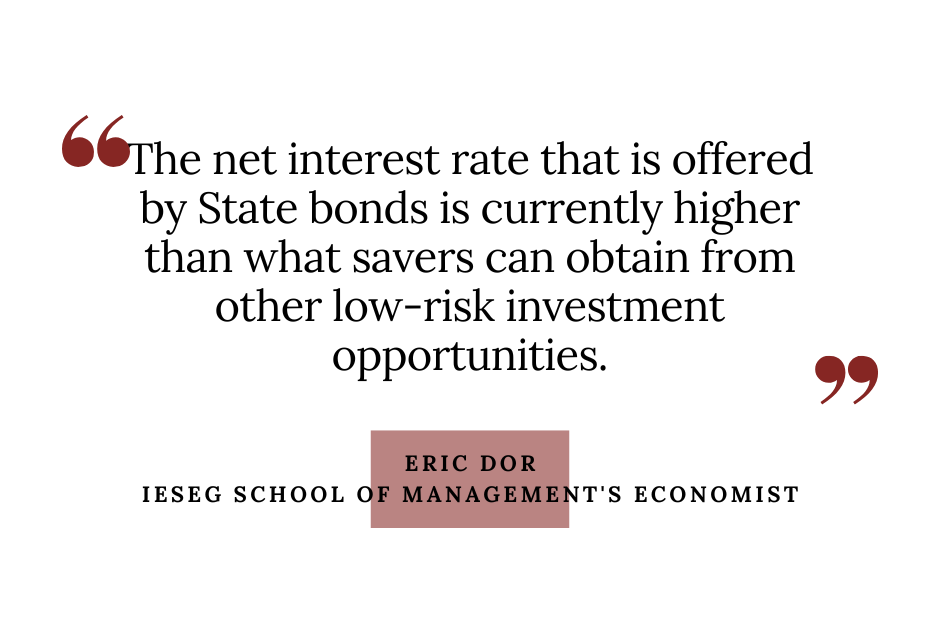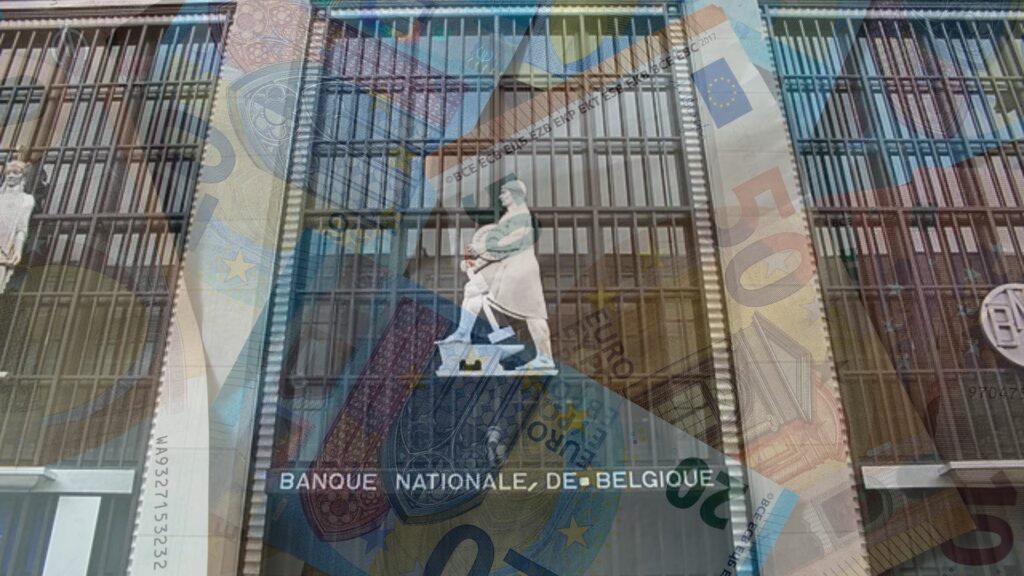For the first time in 11 years, the interest rate on longer-term maturity State bonds, issued by the Belgian treasury and considered a safe investment, will be 3%. We look into what these bonds are, what are the risks, and how to get them.
After a three-year hiatus, Belgium again issued State bonds last year with an interest rate of 2.4% for the ten-year bonds. Their issuing raised €108 million for the State. This March, the Belgian treasury will once again issue state notes, this time with an interest rate of 2.6% for 3-year notes and 3% for 10-year notes. The last time State bonds yielded 3% was in June 2012.
"State bonds are government bonds issued in very small denominations so that they can be bought by ordinary citizens to invest their savings," IESEG School of Management's economist Eric Dor told The Brussels Times.
How does it work and what are the benefits?
People buying bonds lend their money to the Government for an agreed number of years. In exchange, the Government pays lenders an agreed interest each year. The main benefit of State bonds is a certainty, which allows the investor to precisely calculate the return on their investment.
"Investing in State bonds is attractive to individual, risk-averse investors because they are very safe. In addition, the net interest rate now offered by State bonds is higher than what savers can currently get from other low-risk investment opportunities," Dor notes.
The smallest denomination of the bond is €100. This will yield a gross yearly coupon of €3. For an investment of €1000, the lender will receive a gross annual coupon of €30. But lenders should bear in mind that the interest received is taxed at 30%.

This means the 10-year state bonds issued next month will have a net interest rate of 2.1% and 3-year state bonds will have a net interest rate of 1.82%. On a state bond of €100 with a 10-year maturity, investors will therefore receive a net yearly coupon of €2.10, and those investing €100 in three-year maturity bonds will receive a coupon of €1.82.
Dor noted that the next issue of State bonds could offer even higher interest rates than those offered next month: "Indeed yields have been rising for several months on all public and private bonds. There is a high chance that interest rates on State bonds will keep increasing. Investors hoping to benefit from even higher rates could therefore consider waiting even longer."
Getting your money back
On the maturity date of the Bonds (after three or ten years), the invested capital is automatically returned to the investor. The yield of a State bond is only certain if the investor keeps it until it matures.
And though it is not absolutely guaranteed that the capital and interest that an investor is due will be paid – it isn't impossible that the Belgian State goes bankrupt – the chances of this actually happening are tiny. According to the Federal Debt Agency, it is assumed that Belgium "currently has more than sufficient financial resources to meet its financial obligations."
If an investor needs their money back before the State bonds mature, it is possible to sell them on the secondary markets. "But then the yield is uncertain. The price at which it will be possible to sell these old State Bonds will depend on the interest rates that will be offered on new notes at that time," Dor explained, meaning this could result in a capital gain or loss.
"Essentially, investing in state bonds is risk-free if they are held until they mature." Investors selling State bonds on the secondary market also have to pay a tax on stock exchange transactions (0.12%).
The subscription period for the bonds runs from Thursday 23 February to Friday 3 March; payment is made on Monday 6 March. Subscribe here. The value of State notes can be found on the European stock market website.
What are the alternatives?
For anyone wishing to be able to access their funds, regulated savings deposits are tax-exempt up to €980 per year. There currently is around €330 billion invested in these accounts in Belgium and they are also very low risk and protected if a bank goes broke.
Yet the interest rates on these deposits are currently extremely low, Dor noted. Savers can also buy special bonds issued by banks in small denominations for their clients. But here too, interest rates are lower.
Related News
- A worrying trend: Core inflation in Belgium continues to rise
- Belgian long-term interest rates back above 3%
Like State bonds, they are issued at several maturities and are considered "safe", although fall beyond the scope of the deposit protection mechanism, meaning that if a bank becomes insolvent investors may lose part or all of their investment.
Fortunately, "the probability of a bank bankruptcy is very low in Belgium and most people are also nearly sure that the government would rescue banks if necessary," Dor concluded.

